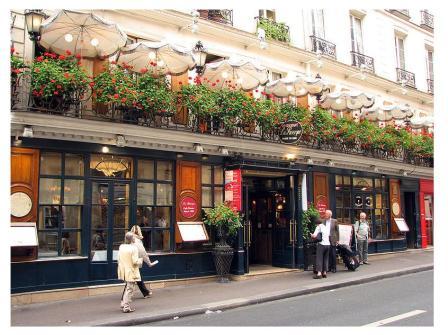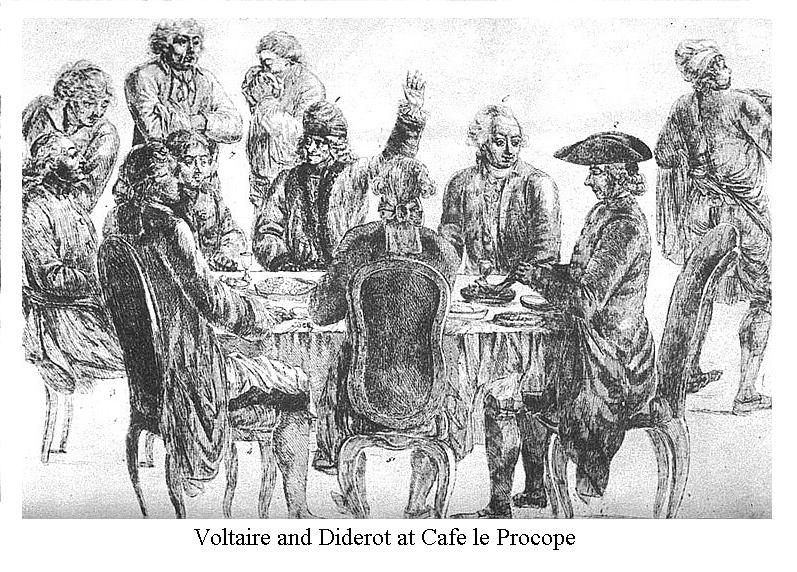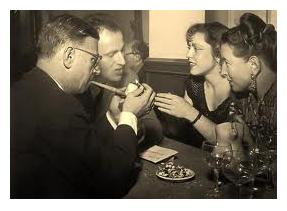March 2012 - Le Procope
 |
|
Paris’ First Café – Le Procope

Le Procope was not the first place in Paris to sell coffee. The first public sale of coffee in Paris was at the fair of St. Germain de Pres and the first Parisian entrepreneur of coffee was probably Pascal, an Armenian. He sold coffee at the fair in 1672, and when it closed he opened a small coffee shop. But his clientele on the Quai de L’Ecole was fonder of wine and beer. He closed that establishment departed to London.
When Le Procope was opened in 1686 (according to other sources it may have opened as late as 1694), public consumption of coffee was gaining acceptance among the upper classes. 

Paul Verlaine, the poet, revived the Café’s literary luster after it had declined a bit in the post-revolutionary period, and as late as 1948 one could find luminaries such as Simone de Beauvoir and Jean Paul Sartre gracing its tables (though their more regular haunts were the nearby Café de Flore and Deux Magots).
Whatever year in the 17th century it was founded, Le Procope was the progenitor of one of the richest café cultures in the world. The cafés of Paris still are still alive with the intellectual as well as the mundain. But the blue haze and pungent smell of Gauloise cigarettes no longer hang in the air. Which probably means the coffee tastes all the better.


